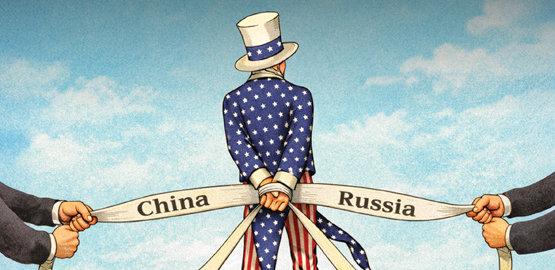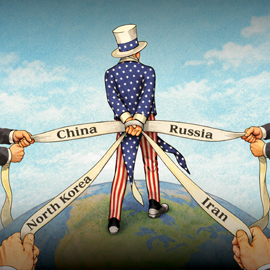News
Quality Has a Quality All Its Own: The Virtual Attrition Value of Superior-Performance Weapons
Sophisticated yet scarce capabilities offer unique advantages, particularly when it comes to degrading an opponent’s military effectiveness by inflicting virtual attrition.
Podcast: The Fallout From a Lost Decade
Eric and Eliot host Richard Fontaine, CEO of the Center for a New American Security and Ambassador (ret.) Robert Blackwill, the Henry A. Kissinger Senior Fellow in U.S. Foreign Policy at the Council on Foreign Relations. They discuss Fontaine and Blackwell's new book Lost Decade: The U.S. Pivot to Asia and the Rise of Chinese Power (New York: Oxford University Press, 2024).
Video: Navigating Tensions: Preparing ASEAN Amid U.S.-China Rivalry
Toshi Yoshihara and Universiti Malaya’s (UM) Associate Professor Roy Anthony Rogers delve into the intricacies of the U.S.-China relationship as well as ASEAN's role in maintaining regional stability amidst varying national alignments.
Podcast: Sweden, Finland, and the Meaning of Alliance Membership
Ahead of the NATO Summit in Washington in July, Katherine Elgin and Alexander Lanoszka discuss what alliance membership means for Sweden and Finland.
Podcast: David Sanger on the New Cold Wars
Eric hosts New York Times Chief Washington Correspondent David Sanger, author of The Inheritance, Confront and Conceal, The Perfect Weapon and most recently New Cold Wars: China's Rise, Russia's Invasion and America's Struggle to Defend the West.
A Three-Theater Defense Strategy: How America Can Prepare for War in Asia, Europe, and the Middle East
As Washington faces growing dangers in three regions, it must learn how to better cooperate and share with its many friends. In major wars, no country, not even the world’s strongest, can go it alone.

























